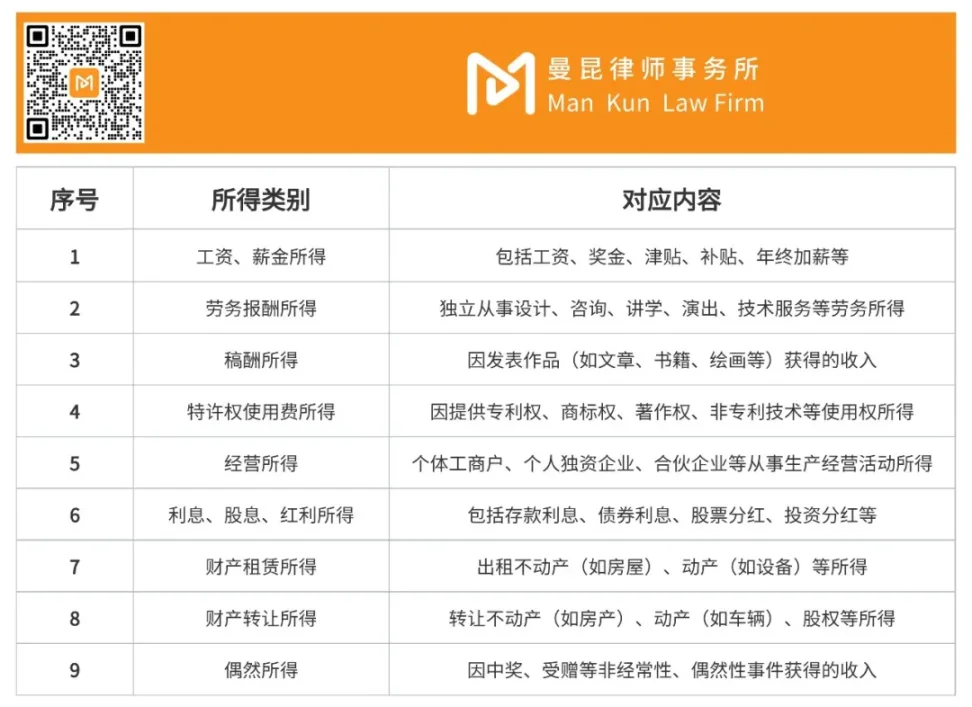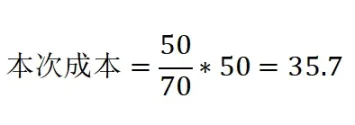The complexity of tax obligations arises not only from the uncertainty of policies but is also closely related to investors' awareness of compliance.
Written by: Huang Wenying
In the wave of the digital economy, virtual currency trading has become a global phenomenon, emerging as a new land for investors to pursue wealth. In this digital gold rush, China's ambiguous legal positioning on virtual currencies and strict trading regulations make tax issues even more complex. Understanding the relevant obligations is not only related to legal compliance risks but may also directly impact investment decisions and returns. This article will focus on individual virtual currency trading, exploring the possibilities and pathways for compliant taxation in the existing regulatory framework in China, providing references for building a healthy and sustainable Web3 ecosystem.
What is virtual currency?
To clarify whether virtual currency is subject to taxation, it is essential to understand what virtual currency is and whether buying and selling it is permitted.
Cryptocurrency is any form of currency that exists in digital or virtual form and uses cryptographic techniques to secure transactions. Cryptocurrencies do not have a central issuing or regulatory authority but instead use decentralized systems to record transactions and issue new units.
Currently, according to the "Notice on Preventing Bitcoin Risks" issued by the People's Bank of China and four other ministries (Yin Fa [2013] No. 289) (hereinafter referred to as "Document No. 289"), the "Announcement on Preventing Token Issuance Financing Risks" issued by the People's Bank of China and seven other ministries on September 4, 2017 (hereinafter referred to as "Announcement No. 94"), and the "Notice on Further Preventing and Dealing with Risks of Virtual Currency Trading Speculation" issued by the People's Bank of China and ten other ministries on September 24, 2021 (hereinafter referred to as "Notice No. 924"), virtual currency is defined as lacking the attributes of legal tender and mandatory currency, does not have the same legal status as currency, and cannot and should not circulate as currency in the market. However, none of the above notices deny the property and commodity attributes that virtual currencies enjoy.
Moreover, Document No. 289 mentions that "Bitcoin trading, as a form of commodity trading on the internet, allows ordinary people the freedom to participate at their own risk," and Notice No. 924 states that "participating in virtual currency investment and trading activities carries legal risks. Any legal person, non-legal person organization, and natural person investing in virtual currencies and related derivatives that violate public order and good customs will have their related civil legal actions invalidated, and any resulting losses will be borne by themselves." It can be seen that under the current system in China, citizens have the right to buy and sell virtual currencies.
So, since virtual currencies can be bought and sold as personal property or commodities, does this activity require taxation?
Is taxation required?
This article only discusses the most basic personal virtual currency trading and does not consider other situations such as airdrops, DeFi earnings, or token staking. We can consider the question of whether taxation is required from several aspects.
From the national perspective, virtual currency trading is not an industry that is encouraged for development, so there are no corresponding tax incentives or exemptions. Additionally, under the current policy and economic environment, the state will not give up on collecting taxes from this potential tax source.
From a regulatory perspective, taxing individuals falls under the category of personal income tax. According to the "Individual Income Tax Law of the People's Republic of China," the following personal income items are subject to personal income tax.

From the perspective of taxation, the purpose of individual trading in virtual currencies is to obtain profits, so a more fitting category may be interest, dividends, or property transfer income. However, holding virtual currency does not have a subject in its economic structure that can generate profits or provide predictable returns on the occupied funds. Therefore, in terms of holding purpose and asset nature, it aligns more with property transfer income.
From a legal standpoint, as of now, China has not introduced specific tax laws or regulations targeting virtual currencies. China's virtual currency tax policy mainly relies on existing tax law interpretations and the practices of local tax authorities.
In addition to the aforementioned "Individual Income Tax Law of the People's Republic of China," the current "Reply from the State Administration of Taxation on the Issue of Personal Income Tax Collection for Income from Buying and Selling Virtual Currencies Online" (Guo Shui Han [2008] No. 818) states that "income obtained by individuals through the online acquisition of virtual currencies from players and selling them at a markup is considered taxable income for personal income tax and should be calculated and paid according to 'property transfer income'." Although this reply was issued before the birth of Bitcoin, there is no legal distinction between blockchain virtual currencies and game virtual currencies, so personal income tax should also be paid according to property transfer income.
How should the tax amount be calculated?
Tax law stipulates that property transfer income is calculated as the income from the transfer of property minus the original value of the property and reasonable expenses, resulting in the taxable income. A proportional tax rate of 20% applies.
In practical cases, transfer income is generally easy to confirm, while determining the original value of the property (purchase cost) becomes the key to calculating the taxable amount.
In the case of purchasing a certain virtual currency with RMB, holding it, and then selling it back for RMB, the selling price is considered income, and the purchase price is considered cost.
Taxable amount = (Income - Cost) * 20%
However, due to the characteristics of blockchain and the trading habits of investors, users may have conducted multiple purchases and coin-to-coin trades in the meantime, making it difficult to accurately trace which purchase funds belong to which transaction when converting some funds back to RMB. In such cases, referring to the accounting methods typically used for other assets, a proportional allocation method may be considered:

Taxable amount = (Income - Current Cost) * 20%
If the taxpayer cannot provide a basis for cost accounting, the tax bureau may conduct an assessment through an evaluation agency or determine the tax amount.
Therefore, investors should properly retain purchase receipts and asset snapshots at the time of sale to accurately calculate costs and report taxes.
How to reasonably plan for taxation?
As an emerging digital economy sector, the Web3 industry offers ample space for tax planning due to its unique operating model and cross-border characteristics. Through reasonable planning, such as choosing jurisdictions with low tax rates or tax incentives, distinguishing income types to optimize tax treatment, optimizing asset structure design, and seeking tax reductions and deferral tools, industry participants can effectively reduce their tax burden while remaining compliant.
It is worth noting that under the current personal income tax system in China, the treatment of investment gains and losses depends on the specific type of investment and tax regulations. For most investments, including virtual currency trading, tax authorities typically calculate taxes on each individual transaction rather than settling based on annual net gains or losses (unlike comprehensive income under individual income tax, which is settled annually). This means that losses from different transactions within the year usually cannot be used to offset gains from other transactions (unlike the regulations for companies, funds, and the IRS in the United States).
Within this framework, individual investors can also optimize their tax plans by reasonably adjusting the nature of their assets and reporting methods. For example, holding some stablecoins after exchanging them at the market peak and then converting stablecoins back to fiat at the market bottom allows investors to reasonably defer paying some taxes.
Situation 1: The cost of purchasing a certain virtual currency A is 50 yuan, and after rising to 100 yuan, it is immediately sold for 50 yuan in fiat currency, after which the market drops and the held A becomes 20 yuan. The taxable amount is:

Taxable amount = (50 - 25) * 20% = 5
Situation 2: The cost of purchasing a certain virtual currency A is 50 yuan, and after rising to 100 yuan, 50 yuan is exchanged for stablecoins. After the market drops, the held A becomes 20 yuan, and total assets become 70 yuan. At this point, selling 50 yuan of stablecoins for fiat currency requires paying taxes on the amount:

Taxable amount = (50 - 35.7) * 20% = 2.86
In both situations, the final exchange resulted in 50 yuan in fiat currency and holding 20 yuan of A, but in a bull market, exchanging for fiat requires paying 5 yuan in personal income tax, while in a bear market, only 2.86 yuan in personal income tax is required. From a legal tax perspective, this contradicts the intuitive idea that "one should cash out in a bull market."
It is important to note that this assumption is based on the premise that the tax bureau allows the use of the proportional allocation method for tax base accounting.
What are the risks of not reporting?
There is a popular saying: "The tax bureau knows you better than you know yourself." While this statement may be somewhat exaggerated, it reflects the comprehensive application of modern tax collection systems, big data technology, multi-department information sharing, electronic tax systems, and intelligent risk monitoring. Especially after the launch of China's "Golden Tax Phase III" system, its powerful data collection and analysis capabilities can restore your economic activities from multiple dimensions.
If one evades tax payments, the tax bureau will order repayment upon inspection, and a daily late fee of 0.05% will be added, along with a fine of 50% to five times the tax amount, and in severe cases, criminal liability may be incurred.
Summary by Attorney Mankun
In the Web3 era, compliant tax reporting is becoming increasingly important. Although blockchain, cryptocurrencies, and decentralized finance (DeFi) have brought new economic models and technological innovations, compliant taxation remains an indispensable legal obligation.
Web3 practitioners and users must pay attention to tax policies, actively record transactions and retain transaction proofs, take asset snapshots at key points, and reasonably plan for taxation within the legal framework to avoid legal risks arising from non-compliance.
The complexity of tax obligations arises not only from the uncertainty of policies but is also closely related to investors' awareness of compliance. In the future, as the regulatory framework gradually improves, the rules in this area may become clearer, but until then, maintaining vigilance and proactively adapting to changes will be key for investors to protect their interests in the Web3 space.
免责声明:本文章仅代表作者个人观点,不代表本平台的立场和观点。本文章仅供信息分享,不构成对任何人的任何投资建议。用户与作者之间的任何争议,与本平台无关。如网页中刊载的文章或图片涉及侵权,请提供相关的权利证明和身份证明发送邮件到support@aicoin.com,本平台相关工作人员将会进行核查。




